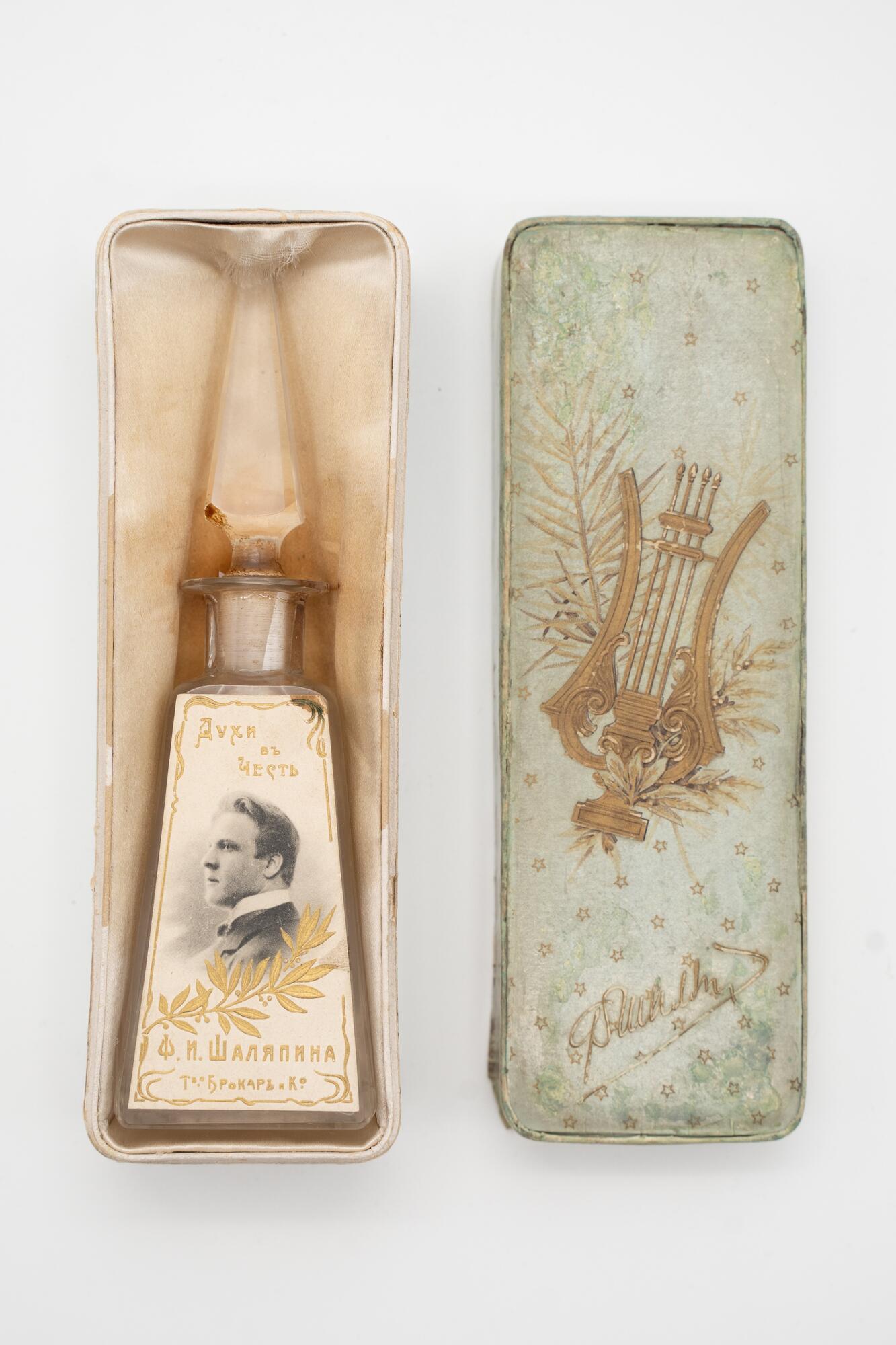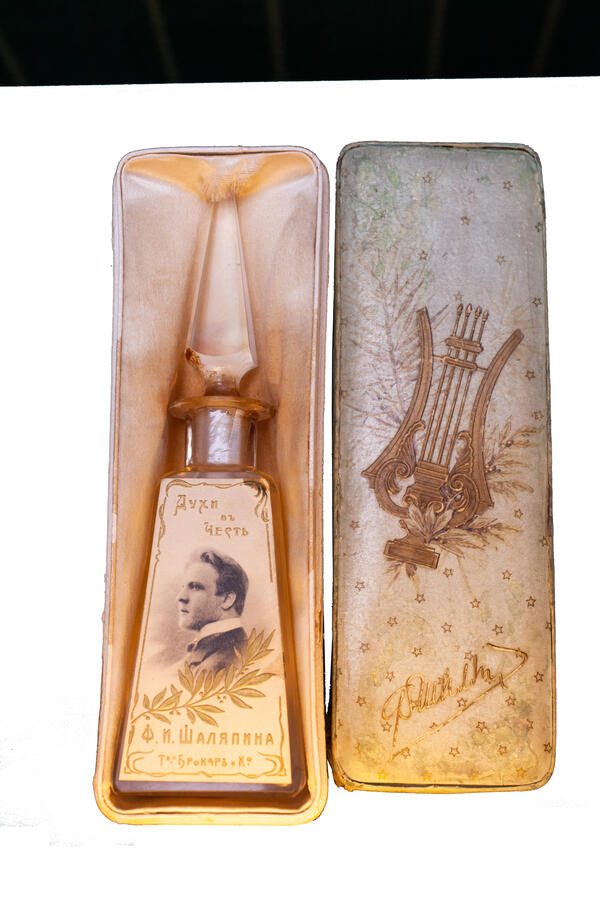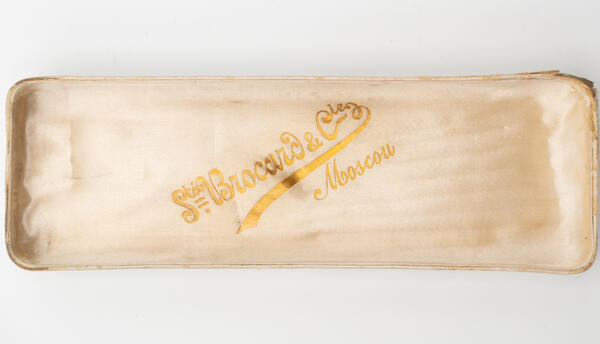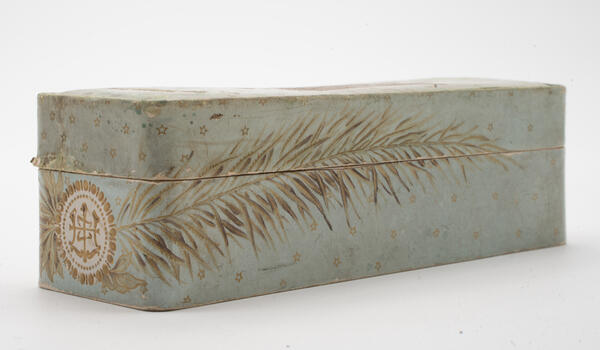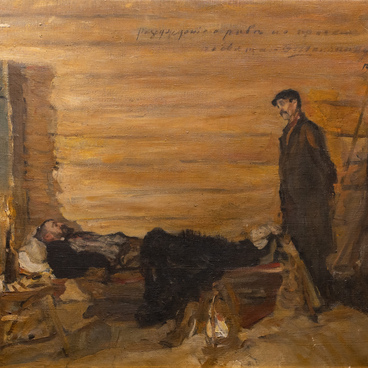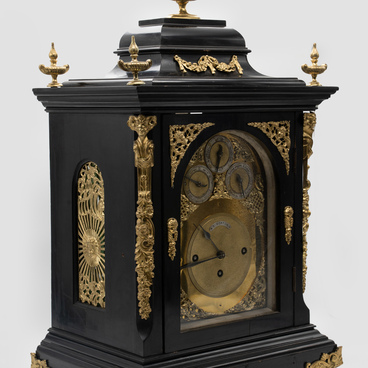The memorabilia in the museum’s collection include a bottle of “Feodor Chaliapin” perfume by Brocard. Like many Russians, Feodor Ivanovich was familiar with the products of this famous, award-winning perfume house and valued them very highly.
Henri Brocard, a Frenchman by birth, founded the Russian perfumery tradition. Brocard’s business empire was widely known both in Russia and abroad. Brocard himself was a versatile person: a successful entrepreneur, an excellent chemist, and a connoisseur of arts.
Before Brocard started his company, personal hygiene items were considered luxuries in Russia and were mostly imported from abroad. Brocard offered a substitute for the expensive imported soap and made it affordable. At his wife’s suggestion, he started with children’s products and manufactured special educational soap, with each bar bearing a letter of the Russian alphabet. Later, the product range was expanded to include such types of soap as “Amber”, “Honey”, ball-shaped and cucumber-shaped soap, and finally, the cheapest “Folk” soap, which cost a kopeck a piece.
After Henri Brocard died, his sons continued his business. The year 1914 marked the company’s 50th anniversary which was widely celebrated both in Moscow and Saint Petersburg. A luxury catalog was designed by popular artists and printed by Alexander Levenson, a Supplier to the Court of His Imperial Majesty. The catalog was published with a limited print run and sent only to high-ranking officials and famous artists, painters, and musicians. A copy was presented to Feodor Chaliapin.
During that time, Chaliapin was extremely famous, and various businessmen took advantage of this. “Chaliapin” candies and chocolates could be seen in the windows and on the shelves of various shops. There were “Chaliapin” combs and even “Chaliapin” wallpaper. Moreover, a “Chaliapin” canary was on display at an exhibition of the Russian Canary Breeding Society.
In 1916, a Brocard representative wrote a letter to Feodor Chaliapin,
Henri Brocard, a Frenchman by birth, founded the Russian perfumery tradition. Brocard’s business empire was widely known both in Russia and abroad. Brocard himself was a versatile person: a successful entrepreneur, an excellent chemist, and a connoisseur of arts.
Before Brocard started his company, personal hygiene items were considered luxuries in Russia and were mostly imported from abroad. Brocard offered a substitute for the expensive imported soap and made it affordable. At his wife’s suggestion, he started with children’s products and manufactured special educational soap, with each bar bearing a letter of the Russian alphabet. Later, the product range was expanded to include such types of soap as “Amber”, “Honey”, ball-shaped and cucumber-shaped soap, and finally, the cheapest “Folk” soap, which cost a kopeck a piece.
After Henri Brocard died, his sons continued his business. The year 1914 marked the company’s 50th anniversary which was widely celebrated both in Moscow and Saint Petersburg. A luxury catalog was designed by popular artists and printed by Alexander Levenson, a Supplier to the Court of His Imperial Majesty. The catalog was published with a limited print run and sent only to high-ranking officials and famous artists, painters, and musicians. A copy was presented to Feodor Chaliapin.
During that time, Chaliapin was extremely famous, and various businessmen took advantage of this. “Chaliapin” candies and chocolates could be seen in the windows and on the shelves of various shops. There were “Chaliapin” combs and even “Chaliapin” wallpaper. Moreover, a “Chaliapin” canary was on display at an exhibition of the Russian Canary Breeding Society.
In 1916, a Brocard representative wrote a letter to Feodor Chaliapin,
